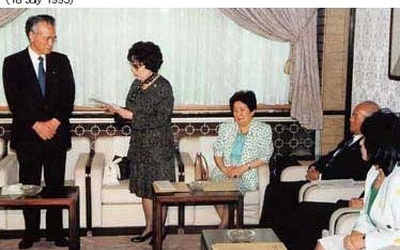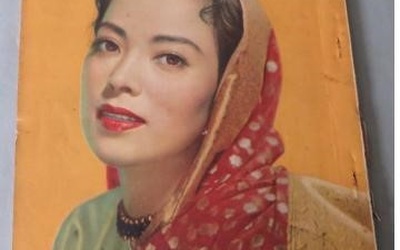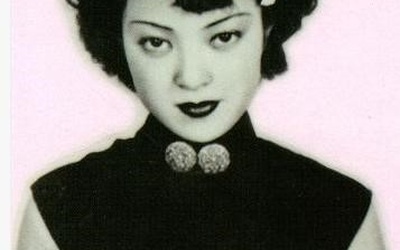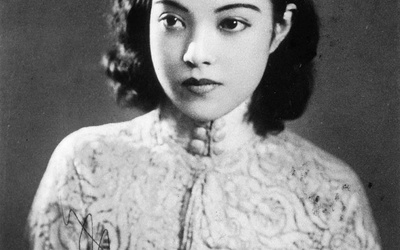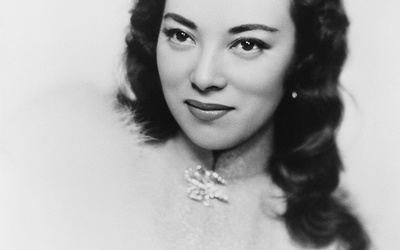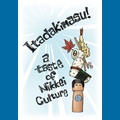
現在91歳のエド・モレノ氏は、テレビ、新聞や雑誌などの報道関係でおよそ70年のキャリアを積み、作家、編集者、翻訳者として数々の賞を受賞してきました。彼が日本文化に傾倒するようになったのは1951年で、その熱は一向に冷める気配を見せません。現在モレノ氏は、カリフォルニア、ウェストコビナ地区のイースト・サン・ガブリエル・バレー日系コミュニティセンター(East San Gabriel Valley Japanese Community Center)の月刊誌「Newsette」で、日本や日系文化、歴史についてのコラムを連載しています。モレノ氏による記事のいくつかは、東京発の雑誌、「The East」にも掲載されています。
(2012年3月 更新)
この執筆者によるストーリー
北の蘭 - パート 5
2017年2月21日 • エドワード・モレノ
パート4を読む>>ここでも、芳子の個人的な話から少し離れて、太平洋戦争終結時の日中関係を振り返ってみましょう。なぜでしょう? ルーズベルト大統領が「永遠に記憶に残る不名誉な日」と呼んだ 1941 年 12 月 7 日の 75 周年にあたり、多くの西側メディアが第二次世界大戦の歴史の「安全なバージョン」、つまり連合国 (中国とロシアを含む) を正義の象徴として、日本を最も卑劣な国として描くバージョンを再び取り上げたからです。芳子はその時期にすでに重要な芸術家となっ…
北の蘭 - パート 4
2017年2月13日 • エドワード・モレノ
パート3を読む>>何世紀にもわたり日本の詩人や哲学者が文化の指針としてきた中国は、独裁政治が続いた結果、貧しく、不潔で、混乱し、アヘンまみれの混沌とした国となっていた。西太后 (1835-1908) の死後、国をまとめる力はほとんど残っていないように思われた。1国内では、野心的で残忍な軍閥が至る所で出現し、それぞれが「トップ」になろうとしていた。対外的には、あらゆる向こう見ずな国が、譲歩によって少しずつであれ、植民地化によって一気にであれ、広大な国を食い尽く…
北の蘭 - パート 3
2017年2月6日 • エドワード・モレノ
パート2を読む>>これまでの各章で、私たちは若きヨシコが周囲の現実の政治世界を少しだけ体験するのを見てきました。窓から目撃した中国人の盗賊の殺害、炭鉱の放火に対する復讐として町全体が虐殺されたこと、地元警察が親友のリュウバの家を破壊したことなどです。少女の精神を四方八方から引っ張る力について少し考えてみよう。中国人と日本人の理解の架け橋になってくれという父親の要求、中国人になりすまして中国人の家族に押し付けられること、カリキュラムがすべて中国語である裕福な少女の…
北の蘭 - パート 2
2017年1月30日 • エドワード・モレノ
パート 1 を読む >> 「奉天は私の夢の城でした」と、前の章でヨシコが言っていましたが、彼女がそう感じたのにはさまざまな理由がありました。瀋陽(西洋人には奉天)としても知られる奉天は、素晴らしい新しい都市へと発展しつつありました。清朝の創始者ヌルハチ1世(1559-1626)が1625年に首都とし、満州族の中心地に変え、すぐに放棄したこの非常に古い場所は、中国で4番目に大きな都市であり、最も重要な北東部の経済の中心地となっていました。義和団の乱(1899-1…
北の蘭 - パート 1
2017年1月23日 • エドワード・モレノ
導入悲劇的な真珠湾攻撃から75年を迎える今、現在「歴史の定説」として扱われている日本に関する誤った情報をすべて払拭すべき時だと思いませんか?歴史マニアの私にとって、最もあからさまな誤解の一つは、日本と中国の関係は常に敵対的で悲劇的であり、日本は中国の永遠の敵であり最悪の抑圧者であり、中国は子供のように無邪気な永遠の被害者であるという定説である。(またはそれに類する言葉。) 1950 年代以降、私たちがその汚らしい誤報の泥沼から抜け出し、特に寡頭政治から近代政治への日本の落ち…
釈迦牟尼を追う - パート 4/4
2015年6月8日 • エドワード・モレノ
パート3を読む>>心に書く新井博士は、弟子たちへのインタビューを通じて、苦しみの終わりに至る道があるという第四の聖なる真理を彼ら自身が解釈し、インタビュー対象者たちが行っていた数多くの儀式を発見した。弟子の本田さんは写経写経1 、つまり経文を書き写す儀式を好んだ。日本書紀には、写経という仏教の慣習が日本の長い歴史の早い時期に存在したことが記されています。写経は聖武天皇の時代(701-756)に正式に始まりました。敬虔で献身的な皇后光明の命により、聖武は写経所を創…
釈迦牟尼を追う - パート 3/4
2015年6月1日 • エドワード・モレノ
パート2を読む>>禅を家庭に持ち込むこの本が生まれたのは、 1996年12月18日、母が亡くなった日だったと荒井さんは言う。何ヶ月も酸素吸入器の音を聞いていた母の寝室は、静寂に包まれていた。母が亡くなることはわかっていたが、生と死の境に立ったとき、一歩間違えれば絶望の淵に突き落とされてしまうような気がした…。この危険な過ちを母が乗り越えられるようにするには、どうすればいいのだろう?何をすべきか、母親の死にふさわしい儀式は何か、手がかりを必死に探していた荒井さんは…
釈迦牟尼を追う - パート 2/4
2015年5月25日 • エドワード・モレノ
パート 1 を読む >>アライさんが仏陀を見つけるための回り道は、カラマズーという「キリスト教中心の大学」で始まった。そこで彼女の主な関心は倫理学になった。「非常に文化的に活動的で、社会問題に非常に関心がある」教会の出身である彼女にとって、大学は友情を築くには素晴らしい場所だったが、キャンパス内の「クリスチャン・フェローシップ」グループの人たちの間での「キリスト教」の実践には不安を覚えた。現在のように複雑で多様な世界では、「これは正しい、あれは間違っている」とい…
釈迦牟尼を追う - パート 1/4
2015年5月18日 • エドワード・モレノ
初めに…宛先: Paula K Arai 博士 (PhD) ・ ルイジアナ州立大学 宗教学准教授兼部門長件名:お問い合わせ荒井博士へ: 正式な紹介がないまま連絡させていただくことをお許しください。あなたの最近の著書Bringing Zen Home を楽しく読ませていただきました。禅の問題を多くのまったく新しい刺激的な角度から扱っており、非常に感銘を受けました。家庭での禅に関するあなたの研究結果は、コラムの理想的なテーマに思えます。出典を明記した上で、 Bringing Z…
Takaramono
2014年7月21日 • エドワード・モレノ
Every time the Center [East San Gabriel Valley Japanese Community Center] had a big celebration, but especially at the Installation ceremonies, she would tell me, her lovely eyes wide open: —Aren’t these children marvelous? Don’t you wish every American kid were like them? Look at how they take care of the “seniors,” especially. I wish I could do something for them… She went without fulfilling this special wish of her heart, but I just couldn’t forget it; and that’s how …

